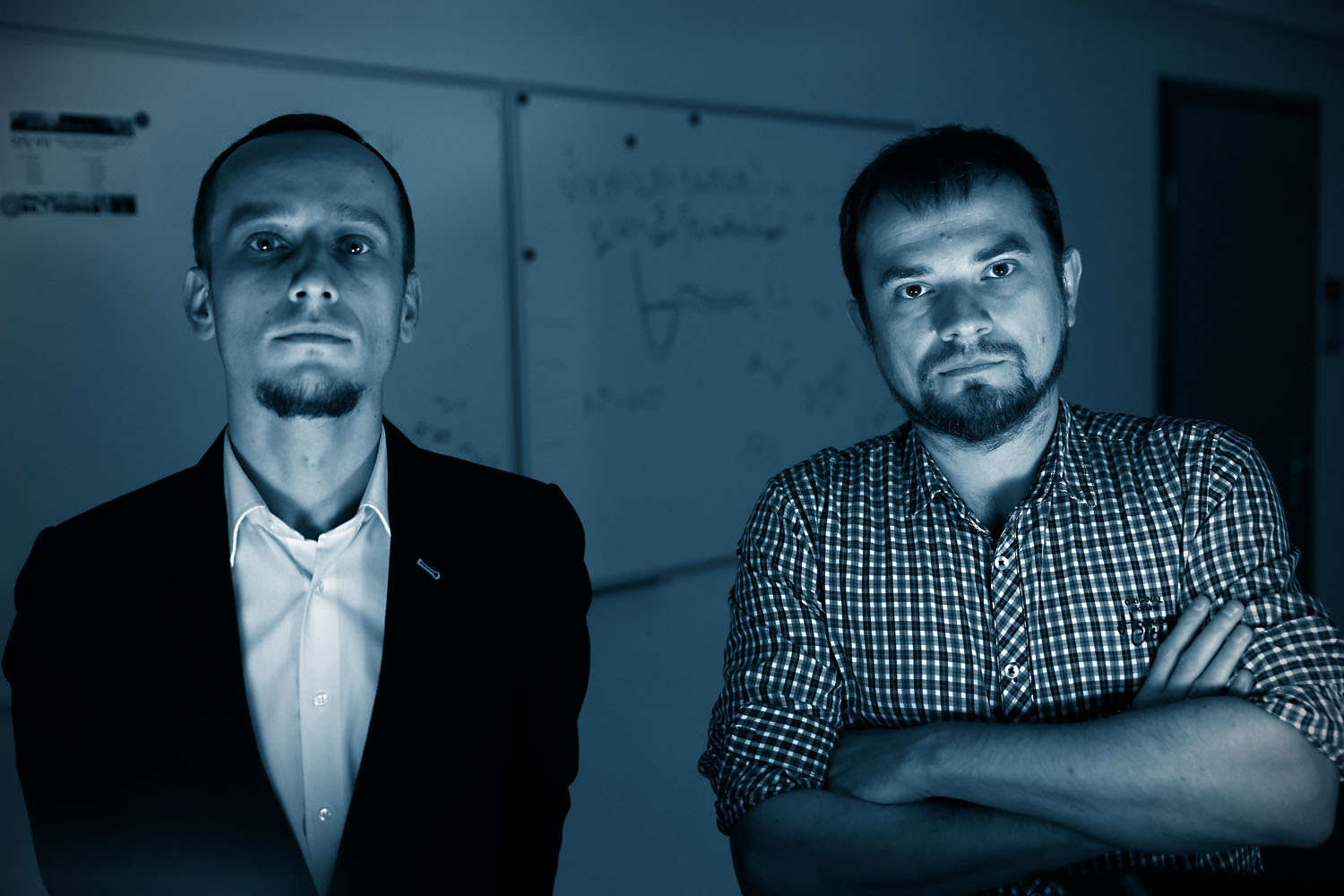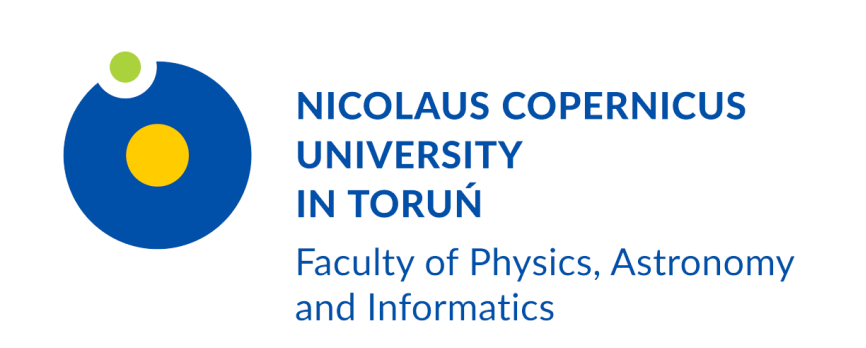 fot. Andrzej Romański
fot. Andrzej Romański
A prestigious “Nature Physics” journal has just published an article whose co-authors are Piotr Żuchowski, PhD from the NCU’s Institute of Physics and Mariusz Pawlak, PhD, Eng from the NCU’s Faculty of Chemistry.
The paper which was published on 17 October on the website of “Nature Physics” describes the study of chemical reactions in which an excited helium atom, by colliding with a hydrogen molecule, results in its ionization.
The research was possible thanks to a unique experiment which was conducted in Weizmann Institute of Science in Israel, in a group headed by professor Edvardas Narevicius. Necessary theoretical support was provided by Piotr Żuchowski, PhD and Mariusz Pawlak, PhD, Eng. from Nicolaus Copernicus University in Toruń, as well as a number of cooperating groups from Technion University in Haifa (Israel), Kassel and Dusseldorf (Germany) and Radboud University in Nijmegen (Holland).
About the research:
Understanding the mechanisms which determine particles’ and atoms’ mutual influences and collisions is a crucial aspect of many branches of science: Physics, Atmospheric Chemistry , Astrophysics, Chemistry of Processes, incineration processes, or numerous biochemical processes. All chemical reactions which are noticeable in daily life are particular examples of particle collisions: they are collisions during which the electron cloud around the molecules or atoms changes.
The publication to which the researchers from NCU have contributed investigated the chemical reactions in which an excited helium atom by colliding with a hydrogen molecule results in its ionization: breaks it into a positively charged ion and a free electron.
In room temperature such occurrences are described by classical Physics: it can be imagined as billiard balls collisions, in which the balls are connected with springs. However, in temperatures near -273 degrees Celsius, just above absolute zero, collisions occur in a totally different manner – one can observe, for instance‚ magic energies for which the reaction goes much faster. Such magical values of the collision’s kinetic energy are known as resonances. It turns out that energies in which such resonances occur depend strongly on how the hydrogen molecule rotates. The molecule’s spin is quantized- its momentum only takes the values of multiples of some integers. By switching the rotation state of a molecule, we alter the resonance structure. What does that mean? It turns out that the differences in resonance energies depend dramatically on the anisotropy of potential, which is how atom and molecules are attracted to each other depending on mutual orientation. Thanks to that, by making use of quantum mechanics, it is possible to define precisely the shape of the interaction potential between an atom and a molecule.
Understanding collisions in low temperatures is crucial for production of ultra-cold matter, which will in the future serve as a basis for time-measuring devices, such as the optical clock, which may form the substance of quantum simulators or contribute to many fundamental pieces of research. Collisions in similar conditions also occur in the interstellar space.
Piotr Żuchowski, PhD, has been an lecturer at the Department of Quantum Mechanics at the NCU’s Institute of Physics Since 2011. He is a co-author of almost 40 academic publications from the Philadelphia List. After obtaining the doctoral degree in 2007 at the Faculty of Chemistry at Warsaw University, he took post-doctoral apprenticeships at English universities in Durham and Nottingham. He is a laureate of Homing Plus scholarship for returning graduates funded by Foundation for Polish Science, a scholarship of the Ministry of Science and High Education for outstanding young researchers, and the winner of NCU’s Rector’s first prize for academic accomplishments in 2014. He is also a beneficiary of a number of programs of National Center of Science and Ministry of Science and High Education. He has made more than ten speeches at international conferences and in foreign research center. His academic interests include interaction between molecules and atoms. In addition, for a couple of years he has been interested in physics of cold atoms and molecules at temperatures lower than 0.001 Kelvin. He is also cooperating with many research groups from all over the world, with his last publication being a result of more than two years of cooperation with professor Edvardas Narevicius- which also two years ago resulted in the publication in “Nature Chemistry” journal. In addition, Piotr Żuchowski, PhD, is cooperating with a group which studies ultra-cold atoms at the National Laboratory of Atomic, Molecular and Optical Physics in Toruń. Privately, Żuchowski, is a father of three children (10-year-old son and 7-year-old twin daughters).
Mariusz Pawlak PhD, Eng. is employed at the Department of Quantum Chemistry at the NCU’s Faculty of Chemistry. His research concern Atomic and Molecular Physics, with his main focus of interest being bound, resonant, Rydberg and Borromean states of quantum patterns in a laser field, constant electric field, and in vicinity of plasma. In 2013-14 he did a post-doctoral apprenticeship at an Israeli Technion Institute of Technology, whose 4 researchers have received the Nobel Prize in Chemistry during the last 12 years. He has also done a number of shorter apprenticeships at the University in Hiedelberg (Germany), University in Lund (Sweden) Indian Association for the Cultivation of Science in Kolkata (India), Weizmann Institute of Science in Rehovot (Israel). He has presented his findings at international conferences and academic symposia in Poland and abroad (in Great Britain, Finland, Sweden, France, Spain, Slovakia, Israel and Austria) in the form of reports and posters. Among his awards and distinctions there is, among others, the best poster award at the 9th Central European Symposium on Theoretical Chemistry in Novy Smokovec. In addition, doctor Pawlak, PhD is a beneficiary of programs funded by the Ministry of Science and Higher Education (Mobilność Plus, TransFormation.doc)and the Foundation for Polish Science (Skills), he has also received a scholarship of the Marshall of Kujawsko-Pomorskie Region. In 2015 he was nominated to the Young Researchers Council (advisory body of the Ministry of Science and High Education). He is also a member of one of the Ministry’s Specialist Teams (ZS-2) and a member of the European Physical Society.

 Grudziądzka 5, 87-100 Toruń
Grudziądzka 5, 87-100 Toruń